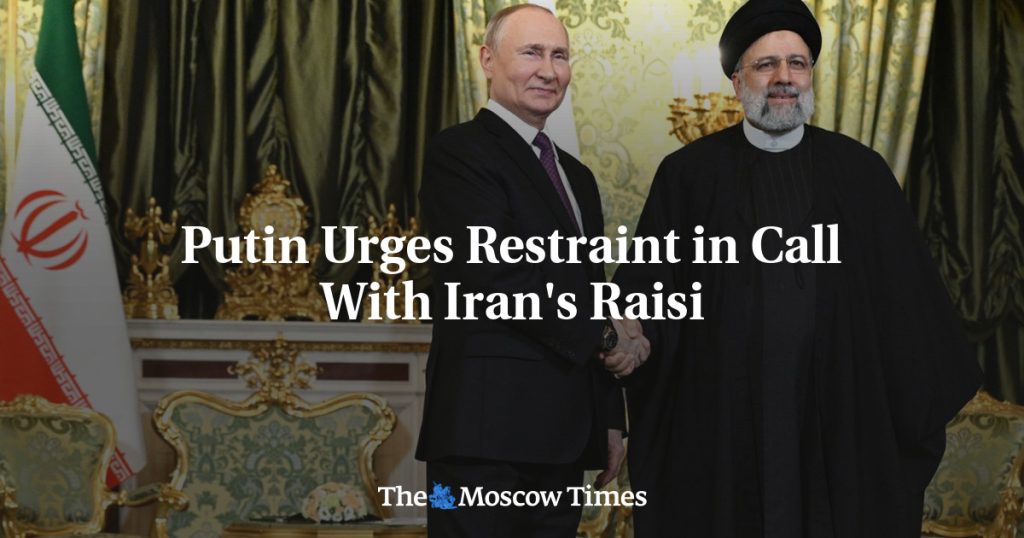Russian President Vladimir Putin recently spoke with Iranian President Ebrahim Raisi on the phone and expressed concern over the potential for further escalation in the Middle East. The Kremlin issued a statement warning that any additional escalation could have catastrophic consequences for the entire region. The tense situation in the Middle East heightened after Iran and its allies launched a significant number of missiles and drones at Israel, claiming self-defense in response to an Israeli strike on its consulate in Syria. Despite Israel stating that it was able to intercept and destroy the majority of the projectiles, the threat of further conflict remains.
In response to Iran’s weekend attack, Israel has promised a retaliatory response but has not yet disclosed what actions it plans to take. The Kremlin highlighted discussions between Putin and Raisi about the escalating situation in the Middle East, particularly following the airstrike on the Iranian diplomatic outpost in Damascus and Iran’s subsequent military action. The close relationship between Moscow and Tehran as military and political allies was emphasized during the call, which was initiated by the Iranian side.
The potential for further conflict in the Middle East remains a significant concern, with both Russia and Iran urging caution to prevent a catastrophic escalation. Putin’s call with Raisi focused on the need for all parties involved to exercise restraint and avoid further confrontation. The recent exchange of military strikes between Iran and Israel has exacerbated tensions in the region, with the threat of further escalation looming large. Both countries are closely monitoring the situation and preparing for potential responses to each other’s actions.
The Israeli airstrikes on the Iranian consulate in Syria and Iran’s subsequent air assault on Israel have raised fears of a broader conflict in the Middle East. The Kremlin’s statement following the call between Putin and Raisi underscored the seriousness of the situation and the potential consequences of further escalation. As two key players in the region, Russia and Iran are working to address the current crisis and prevent it from spiraling out of control. The international community is closely watching developments in the Middle East and calling for calm to prevent a full-scale conflict.
The delicate balance in the Middle East is at risk of being disrupted by the recent exchanges of military action between Iran and Israel. The call between Putin and Raisi reflects the heightened tensions and the urgent need for diplomatic efforts to defuse the situation. Russia and Iran’s alliance adds another layer of complexity to the conflict, with both countries having strategic interests in the region. The Kremlin’s warning about catastrophic consequences serves as a stark reminder of the potential impact of further escalation and the need for immediate de-escalation measures.
In conclusion, the recent developments in the Middle East highlight the fragility of the region and the risk of conflict escalation. The phone call between Putin and Raisi sheds light on the ongoing diplomatic efforts to address the crisis and prevent further confrontation. The close ties between Russia and Iran underscore the complex political dynamics at play and the challenges of finding a peaceful resolution. As tensions continue to simmer in the Middle East, international pressure is mounting on all sides to exercise restraint and prioritize diplomatic solutions. The coming days will be critical in determining the course of events and whether a full-scale conflict can be averted.


